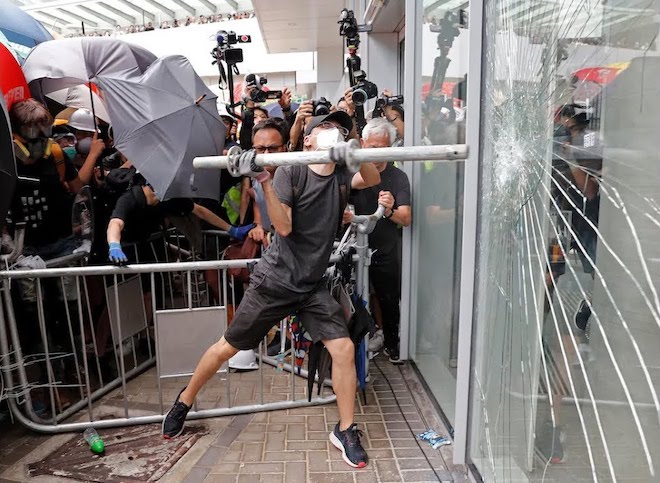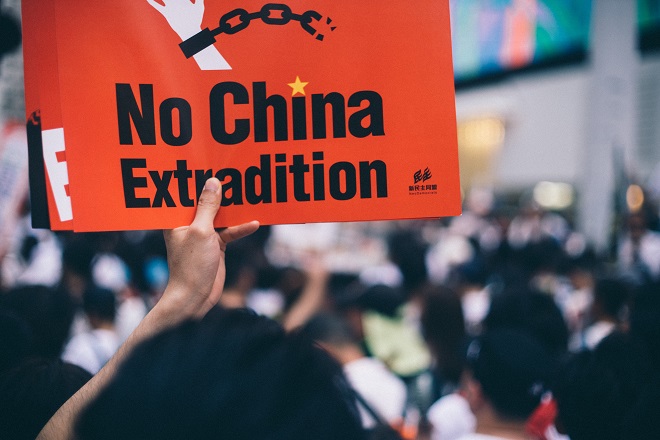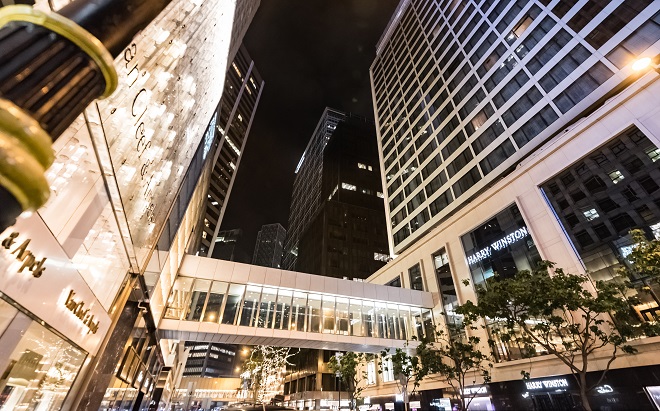Post-Extradition Bill, Hong Kong’s On-Going Protests Weaken the Luxury segment
But for how long? According to analysts, the seeds of long term economic damage have already been planted with luxury segments taking the initial brunt amidst falling investor confidence. But the real question is, can the damage be reversed?

From trickle to torrential rain, the exodus of wealth from Hong Kong continues to pick up pace, even with the demise of Carrie Lam’s proposed Extradition Bill. Amidst the ongoing turmoil in the autonomous Chinese city, the spread of economic damage, which began from capital outflows in the direction of Singapore, the UK, and Australia, does not seem to be reversing any time soon.
Worst of all, it appears that the devastation is not limited to wealth fund management and capital. The retail markets, beginning with the luxury segment, are beginning to show signs of tremendous stress and disruption.
“The extradition bill caused some local money to look beyond Hong Kong, with Singapore favoured, followed by the UK, and Australia”
Post-Extradition Bill, Hong Kong’s On-Going Protests Weaken the Luxury segment and Beyond

Although the unpopular Extradition Bill has officially been declared “dead”, new statistics from property consultancy Savills show that interest in houses priced between HK$40,000 (US$6,983) and HK$100,000 (US$$17,457) per square foot fell in the second quarter of 2019. This had resulted in a 1.5% slide in the prices of town houses, representing the first price drop since the third quarter of 2018.
Last month, the Hong Kong government was also forced to delay the tender for a parcel of land that would have fetched an estimated US$1.7 billion (S$2.3 billion), following one of the most serious incidents – the storming of the Hong Kong Parliament.

The Hong Kong Hang Seng Index also plunged 1.7%, with local property developers suffering the most. Tourism, which accounts for 5% of Hong Kong’s annual Gross Domestic Product, also fell by over 20% from the same period in 2018.
The failed Extradition Bill has already caused long term damage
While the property and tourism sectors have experienced the most immediate repercussions in the short-term, experts say the seeds of long-term damage to the Hong Kong economy has already been planted, despite Chief Executive Carrie Lam’s attempts with an emergency course correction.

Hong Kong chief executive Carrie Lam at a press conference with Secretary for Justice Teresa Cheng and Secretary for Security John Lee the day after the June 10 protest which resulted in violent clashes between protesters and police.
Hong Kong’s status as a special administrative region is fast sounding more like a meaningless label than an actual practice, with the government heavily influenced by Beijing. Consequently, foreign businesses and local investors alike are already in the process of shifting their funds to Singapore and beyond, according to Simon Smith, senior director, research and consultancy, Savills.
“The extradition bill caused some local money to look beyond Hong Kong, with Singapore favoured, followed by the UK, and Australia”, Smith told the South China Morning Post.

Rioters holding up a sign in protest against the Extradition Bill
The investor confidence Hong Kong once enjoyed, is slowly being chipped away one protest at a time, and new incidents from earlier this week only further complicate matters. On July 23, some 50 protesters were physically attacked by local triad members believed to be in cahoots with Beijing.
Hong Kong sales of luxury goods affected
Hong Kong Retail Management Association has drastically lowered its overall retail sales forecast for 2019 from a single digit growth to a double digit drop.

Just what is the fallout damage to Hong Kong and regional luxury markets then?
Despite these negative updates, the luxury real estate sector appears to be avoiding the the tempest of economic forces, at least for the time being. Latest data from property advisor JLL revealed an uptick in sales revenues of luxury properties in the most recent financial quarter.
Still, this did not stop an unnamed buyer from backing out of a HK$251.23 million home purchase last month, losing a HK$25 million downpayment in the process. No reasons were stated as to why they withdrew from the transaction, but my bet is on the city’s sorry state of affairs.

Two luxury jewellers sparkling in the night lights of Salisbury Road
Retail, however, is another story. It is no secret that Hong Kong luxury retailers are greatly dependent on mainland Chinese consumer spend. In fact, over 60% of total luxury product sales are attributed to mainland Chinese tourists. Post-Extradition Bill, things are looking a lot bleaker with more mainland visitors choosing to remain in the safety of their homes, or making decisions to seek other destinations instead.
There are already a couple of major casualties. Swiss luxury goods group Richemont, which owns watch and jewellery brands like Cartier, Jaeger-LeCoultre, and A. Lange & Söhne, reported that sales fell in the month of June. Hong Kong is the top export market in the world for Swiss watches, so this is certainly a blow on some level for the company, echoing Swatch Group sentiments. Homegrown jewellery group Chow Tai Fook also saw sales drop 11%.
In view of this, the Hong Kong Retail Management Association has drastically lowered its overall retail sales forecast for 2019 from a single digit growth to a double digit drop.

Retailers are at the mercy of the Hong Kong government and people
How long will Hong Kong’s economic uncertainty last?
“Investors in mainland China will still prefer Hong Kong over Singapore due to proximity,”
While things are looking increasingly dark for Hong Kong, how much will neighbouring countries, like Singapore, truly stand to gain? According to one analyst, the shift of money to Singapore accounts has already happened but will eventually fizzle out.

Wealth shift to Singapore: A temporary or long term measure?
“Investors in mainland China will still prefer Hong Kong over Singapore due to proximity,” Abhineet Kaul, Director, Public Sector & Government Consulting, Frost & Sullivan, told The Straits Times.
But there is also enough evidence to suggest otherwise. One European private wealth advisory firm, which declined being named, had reportedly scraped plans to set up its Asia headquarters in Hong Kong, instead moving it to Singapore in the eleventh hour.
“We have been watching the situation in Hong Kong for the last few weeks and what we are seeing there doesn’t give us much confidence,” said the company’s CEO to Channel NewsAsia.

“For me, the most important thing is stability for clients because you don’t want to go and invest US$1 million-US$2 million to set up operations, and then one day you need to shut it down because your clients don’t feel safe to operate in that market.”
Singapore property agents also reported an increase in inquiries from the finance managers of several Hong Kong-based ultra high net worth individuals. No matter the outcome, these are certainly interesting times for both markets.



